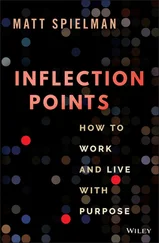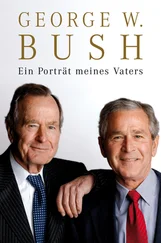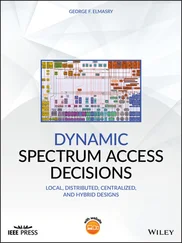At Guantanamo, detainees were given clean and safe shelter, three meals a day, a personal copy of the Koran, the opportunity to pray five times daily, and the same medical care their guards received. They had access to exercise space and a library stocked with books and DVDs. One of the most popular was an Arabic translation of Harry Potter .
Over the years, we invited members of Congress, journalists, and international observers to visit Guantanamo and see the conditions for themselves. Many came away surprised by what they found. A Belgian official inspected Guantanamo five times and called it a “model prison” that offered detainees better treatment than Belgian prisons. “I have never witnessed acts of violence or things which shocked me in Guantanamo,” he said. “One should not confuse this center with Abu Ghraib.”
While our humane treatment of Guantanamo detainees was consistent with the Geneva Conventions, al Qaeda did not meet the qualifications for Geneva protection as a legal matter. The purpose of Geneva was to provide incentives for nation-states to fight wars by an agreed set of rules that protect human dignity and innocent life—and to punish warriors who do not. But the terrorists did not represent a nation-state. They had not signed the Geneva Conventions. Their entire mode of operation—intentionally killing the innocent—defied the principles of Geneva. And if al Qaeda captured an American, there was little chance they would treat him humanely.
This was confirmed with gruesome clarity in late January 2002, when terrorists in Pakistan abducted Wall Street Journal reporter Daniel Pearl. They alleged he was a CIA spy and tried to blackmail the United States into bargaining for his release. America has a longstanding policy of not negotiating with terrorists, and I continued it. I knew that if I accepted one terrorist’s demands, it would only encourage more kidnappings. Our military and intelligence assets were searching urgently for Pearl, but they couldn’t make it in time. In his final moments, Danny Pearl said, “My father is Jewish, my mother is Jewish, I am Jewish.” Then his al Qaeda captors slit his throat.
As I made my decision on Geneva protection, I also decided to create a legal system to determine the innocence or guilt of detainees. George Washington, Abraham Lincoln, William McKinley, and Franklin Roosevelt had faced similar dilemmas of how to bring captured enemy combatants to justice during wartime. All had reached the same conclusion: a court operated by the military.
On November 13, 2001, I signed an executive order establishing military tribunals to try captured terrorists. The system was based closely on the one created by FDR in 1942, which tried and convicted eight Nazi spies who had infiltrated the United States. The Supreme Court had unanimously upheld the legality of those tribunals.
I was confident the military tribunals would provide a fair trial. Detainees were entitled to the presumption of innocence, representation by a qualified attorney, and the right to present evidence that would “have probative value to a reasonable person.” For practical national security reasons, they were not allowed to view classified information that would expose intelligence sources and methods. Convicting a defendant required agreement of two thirds of the tribunal. The detainee could appeal the tribunal’s decision or sentence to the secretary of defense and to the president.
Inherent in my tribunals decision—and many others in the new war—was the tension between protecting the American people and upholding civil liberties. Maintaining our values was critical to our position in the world. We could neither lead the free world nor recruit new allies to our cause if we did not practice what we preached. I believed military tribunals struck the right balance, upholding the rule of law while protecting the country.

On March 28, 2002, I could hear excitement in George Tenet’s voice. He reported that Pakistani police—with a hand from the FBI and CIA—had launched a takedown operation against several al Qaeda safe houses in the Pakistani city of Faisalabad. They netted more than two dozen operatives, including Abu Zubaydah.
I had been hearing reports about Zubaydah for months. The intelligence community believed he was a trusted associate of Osama bin Laden and a senior recruiter and operator who had run a camp in Afghanistan where some of the 9/11 hijackers had trained. He was suspected of involvement in previous plots to destroy targets in Jordan and blow up Los Angeles International Airport. The CIA believed he was planning to attack America again.
Zubaydah had been severely wounded in a gun battle prior to his arrest. The CIA flew in a top doctor, who saved his life. The Pakistanis then turned him over to our custody. The FBI began questioning Zubaydah, who had clearly been trained on how to resist interrogation. He revealed bits and pieces of information that he thought we already knew. Frighteningly, we didn’t know much. For example, we received definitive information about a new alias for Khalid Sheikh Mohammed, who Zubaydah also confirmed had masterminded the 9/11 attacks.
Then Zubaydah stopped answering questions. George Tenet told me interrogators believed Zubaydah had more information to reveal. If he was hiding something more, what could it be? Zubaydah was our best lead to avoid another catastrophic attack. “We need to find out what he knows,” I directed the team. “What are our options?”
One option was for the CIA to take over Zubaydah’s questioning and move him to a secure location in another country where the Agency could have total control over his environment. CIA experts drew up a list of interrogation techniques that differed from those Zubaydah had successfully resisted. George assured me all interrogations would be performed by experienced intelligence professionals who had undergone extensive training. Medical personnel would be on-site to guarantee that the detainee was not physically or mentally harmed.
At my direction, Department of Justice and CIA lawyers conducted a careful legal review. They concluded that the enhanced interrogation program complied with the Constitution and all applicable laws, including those that ban torture.
I took a look at the list of techniques. There were two that I felt went too far, even if they were legal. I directed the CIA not to use them. Another technique was waterboarding, a process of simulated drowning. No doubt the procedure was tough, but medical experts assured the CIA that it did no lasting harm.
I knew that an interrogation program this sensitive and controversial would one day become public. When it did, we would open ourselves up to criticism that America had compromised our moral values. I would have preferred that we get the information another way. But the choice between security and values was real. Had I not authorized waterboarding on senior al Qaeda leaders, I would have had to accept a greater risk that the country would be attacked. In the wake of 9/11, that was a risk I was unwilling to take. My most solemn responsibility as president was to protect the country. I approved the use of the interrogation techniques.
The new techniques proved highly effective. Zubaydah revealed large amounts of information on al Qaeda’s structure and operations. He also provided leads that helped reveal the location of Ramzi bin al Shibh, the logistical planner of the 9/11 attacks. The Pakistani police picked him up on the first anniversary of 9/11.
Zubaydah later explained to interrogators why he started answering questions again. His understanding of Islam was that he had to resist interrogation only up to a certain point. Waterboarding was the technique that allowed him to reach that threshold, fulfill his religious duty, and then cooperate. “You must do this for all the brothers,” he said.
Читать дальше












